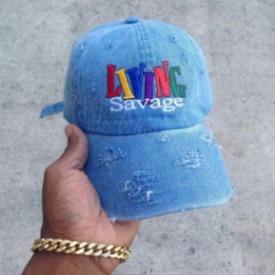Having Trouble with Fat Vs. Carb intake

Beehiveof8
Posts: 85 Member
I'm trying to keep my carbs low... it is hard! But when I do better with my Carbs, my "fat" goes over. Some days way over! Anyone else have this trouble?
0
Replies
-
Being on a low carb diet I don't worry too much about fat as long as I'm getting healthy fats found in butter, peanut butter, coconut oil etc. Fat does raise the calorie level quite a bit.
This month since I'm working harder to meet my goal, I am watching calories too. I've pretty much eliminated dairy (cheese) because its high in fat and calories and am mainly keeping my fats to butter and coconut oil.
Did that help? LOL0 -
I always use reduced fat, or low fat for the dairy, except milk, which I use in my coffee. We get it fresh from a farmer nearby, so it is the real deal, KWIM? But I don't sit down and drink a glass of it, which I would LOVE to do.
Some of my protien snacks are almonds, and those are high in protein and fat, which frustrates me. Seems like everything that is low carb is higher in fat. That is what is frustrating me. Then if it is low carb, low fat, then it is high in sodium. Seriously, watching everything is getting me so irritated!0 -
What are your macros set to, percentage-wise? carbs/protein/fat...mine are 10/40/50
The problem I have is going over on protein.0 -
going low carb = going high fat. There is nothing to be afraid of if you are eating the majority of your calories from Fats!
If you don't understand this, read more about it in The Primal Blueprint or other low carb books or websites that explain how the body needs fats and complete proteins.0 -
going low carb = going high fat. There is nothing to be afraid of if you are eating the majority of your calories from Fats!
If you don't understand this, read more about it in The Primal Blueprint or other low carb books or websites that explain how the body needs fats and complete proteins.
Exactly! You can't stay low everything, your percentages will have to equal 100%. If you are low carbing, you need to increase your fat intake, just make sure you're getting good fats not trans fats etc - almonds are good for you and have good fats in them, AND the carbs are mostly fiber carbs! Good stuff! Don't worry so much about the fats and be sure you get enough greens and high fiber type veggies to help your digestion!0 -
going low carb = going high fat. There is nothing to be afraid of if you are eating the majority of your calories from Fats!
If you don't understand this, read more about it in The Primal Blueprint or other low carb books or websites that explain how the body needs fats and complete proteins.
Exactly! You can't stay low everything, your percentages will have to equal 100%. If you are low carbing, you need to increase your fat intake, just make sure you're getting good fats not trans fats etc - almonds are good for you and have good fats in them, AND the carbs are mostly fiber carbs! Good stuff! Don't worry so much about the fats and be sure you get enough greens and high fiber type veggies to help your digestion!
If you do find that perhaps your doctor isnt a fan of the fat-amounts and its showing in any of your blood work, just get a better variety in... Incorporate a variety of low/no carb vegetables into your meal planning efforts, they can be easily steamed with lemon-water, some fresh herbs... definitely still get plenty of flavors that way!
As long as you are though, concentrating on heart healthy fats, you will be fine...0 -
I look at the high fat numbers to check what they are. Dairy fats, not great. Avocados, coconut oil, olive oil? Not worried. So maybe start with that.0
-
The diet my Dr. has me on, my carbs, sugar and sodium are low. protein is always way over MFPs recommendations. this forces my body to burn fat for energy rather than using the ready energy of sugar and carbs, the low sodium helps control water weight and the high protein (and exercise) prevents the loss of muscle mass while I lose weight more quickly.
i do find that my fats are higher, and even if they are for days at a time, my weight still drops. for me, anyway, the low carb low sugar combo seems to be the magic combination.0 -
It's way better to go high fat. I'm doing keto, which is sort of the low-end extreme of low-carbing, and my ratios tend to fall between1% carbs/25%protein/74% fat and 3% carbs/30% protein/66% fat. If you eat too much protein and not enough fat, gluconeogenesis will cause you to burn the glucose your body can strip from protein, rather than burning fat for fuel. I think it's best to eat maintenance protein (0.7-1.2g protein per pound of lean body mass) and fill in the rest with fat and carbs in vegetables. Dietary fat is nothing to be scared of, and dietary saturated fat will not hurt your heart in any way. Load up on animal fats, coconut oil, and olive oil, and skip all other plant and seed derived oils.
 0
0 -
I am just starting a low carb diet. Not sure of my macros or which one yet but this was a great discussion!0
-
auctoritas wrote: »It's way better to go high fat. I'm doing keto, which is sort of the low-end extreme of low-carbing, and my ratios tend to fall between1% carbs/25%protein/74% fat and 3% carbs/30% protein/66% fat. If you eat too much protein and not enough fat, gluconeogenesis will cause you to burn the glucose your body can strip from protein, rather than burning fat for fuel. I think it's best to eat maintenance protein (0.7-1.2g protein per pound of lean body mass) and fill in the rest with fat and carbs in vegetables. Dietary fat is nothing to be scared of, and dietary saturated fat will not hurt your heart in any way. Load up on animal fats, coconut oil, and olive oil, and skip all other plant and seed derived oils.

I am also in nutritional Ketosis, from what I have gathered, is 7 oz of lean meats, 5 oz of semi lean meat, 4 cups of veggies or 2 cups of fruit and 2 cups of veggies per day. One Gallon of water a day, no caffeine. This has helped me lose 41lbs since October. What do you eat in a day? Do you workout also? If so, what do you do and how long?
0 -
Oh my, so much misinformation here...Being on a low carb diet I don't worry too much about fat as long as I'm getting healthy fats found in butter, peanut butter, coconut oil etc. Fat does raise the calorie level quite a bit.
This month since I'm working harder to meet my goal, I am watching calories too. I've pretty much eliminated dairy (cheese) because its high in fat and calories and am mainly keeping my fats to butter and coconut oil.
Did that help? LOL
Butter has more fat per serving than cheese, because butter is almost pure milk fat. However, neither of these are a bad thing, especially when you reduce carbs. Fat sources will always have upwards of 120 calories per tablespoon ("pure" fats, like coconut oil will be on this higher end, and that number will reduce as other things are added in, like water or protein).
Fats will not jack up your calories if you stick to your fat goal you've set in MFP (you can set MFP's macros to whatever you need them, too). It's just not possible. Those gram goals are based on a percentage of the calorie goal. If you meet everything exactly, and the entries are perfectly accurate, your calories would be exactly right, too.
Yes, fat has more calories per gram, but that's why you can fewer grams and still be satisfied.Beehiveof8 wrote: »I always use reduced fat, or low fat for the dairy, except milk, which I use in my coffee. We get it fresh from a farmer nearby, so it is the real deal, KWIM? But I don't sit down and drink a glass of it, which I would LOVE to do.
Some of my protien snacks are almonds, and those are high in protein and fat, which frustrates me. Seems like everything that is low carb is higher in fat. That is what is frustrating me. Then if it is low carb, low fat, then it is high in sodium. Seriously, watching everything is getting me so irritated!
Everything that is low carb is higher in fat, because when you reduce carbs, you have to increase your fat in order to get sufficient energy. Protein is not fuel. It's building blocks for your lean mass. Additionally, low carb, low fat, high protein is dangerous and damaging to your body. In extreme cases, it leads to death. In not so extreme cases, it damages the kidneys and elevates blood sugar, because in order to use protein as fuel, it has to be made into glucose through a process called gluconeogenesis, which is hard on the kidneys, which aren't built to do that process full-time. It can also lead to constipation (though will swing the opposite way in the extreme and potentially deadly route), due to lack of fat to keep things moving smoothly (fiber really just adds bulk and "roughage" to things). At the very best, it's an extraordinarily dull and dry way of eating.
When it comes to low carb, eat fat to burn fat.
Also, nuts are not a protein snack. They're a fat snack. The majority of the calories in nuts come from fat, not protein. A true protein snack would be something like egg whites or jerky.As long as you are though, concentrating on heart healthy fats, you will be fine...pfeiferfit wrote: »I look at the high fat numbers to check what they are. Dairy fats, not great. Avocados, coconut oil, olive oil? Not worried. So maybe start with that.
Dairy fat is fine, though some people have issues losing weight with it due to the higher insulinogenic effect of whey.
No, saturated fat does not "clog your arteries" or otherwise raise your risk factor for heart disease. In fact, numerous studies (with a total number of subjects approaching half a million people) have actually shown no statistical evidence to back the claim that it does.
Even if it did, and "saturated fat" (which is actually multiple different kinds of fatty acids) was shown to be "bad," dairy fat is 40-50% monounsaturated, 5-10% polyunsatured, and only 40-50% saturated, while coconut oil is 95-99% saturated fats. So coconut oil would arguably not be such a great choice under that logic. Coming from a plant does not make it inherently healthy, and coming from an animal does not make it inherently unhealthy.
The only fats to actively avoid is artificial trans fat and oxidized/rancid fats. Those has been shown time and time again to be detrimental to health in numerous ways. Oxidized fats are fats that have been heated above their tolerance threshold and damaged. Most seed oils are oxidized/rancid, because they have a high Omega-6 content, which is very heat-sensitive. Save your polyunsaturated fats for cold uses (dressings, etc), and use the saturated fats for cooking. Monounsaturated fats a fairly heat tolerant, as well, though their other benefits (vitamin E, etc) may not be, so keep that in mind and consider using them cold primarily as well.
Also, plants contain cholesterol, too. They're called phytosterols, and they're molecularly almost identical to animal-based cholesterol.0 -
FAT. IS. NOT. BAD. Repeat it to yourself in the mirror every morning. Fat is good. Fat works with moderate protein to keep you satiated. Fat is fuel. Repeat.
- Count your carbs.
- Hit your moderate protein goal.
- Fill the rest with fat.

0 -
Living in nutritional ketosis since the first of Oct 2014 I am finding it does have a 'continuing' learning curve in my case.

The carbs want to creep back in for sure in my case and is why I like baconslave's three simple points to a keto diet.
I had to work on the high fiber veggie thing but it is not that hard after I made it a focus.
It is just me but with these single digit temps and a hard flu season I have been eating more calories and trying to keep them in the FAT group. Also I have really gotten into learning about the importance of Vitamin D3 after the doctor has been on my case for two years to get my levels out of the 20's and am shooting for a level of 75 by this July.
I do not push the wife and kids (age 17) to do low carbs but I have on the taking of Vitamin D3 since from what I can read it can be more effective in preventing the flu than the flu shot.
On low carb I am looking at it as my new eating lifestyle as it has helped get my arthritis pain levels down from 7-8 to 2-3 on a 1-10 scale. Weight loss is a plus that I really need. In time from my reading of active Vit D3 research in and outside of the USA I expect some more reduction in pain over time.
Again getting into very low carb eating was never my plan but it just evolved over time when pain management as my real focus. Kept working and reading and finally low carbing started to make sense in my case. 0
0 -
I'm new to this and hoping I'm doing it somewhat right. Would some of you well knowledged lchf veterans mind taking a look at my diary? I'm open to all advice. I'm wondering if I'm not consuming enough protein. Does it hurt to have low protein and higher fat?0
-
I set my goals to 75% Fat 20% Protein and 5% Carbs. I just did this the other day. I will see if it works. OH and 1200 calorie. Not going to worry if it goes over the 1200. It ends up about 100g Fat 60G Protein and 15G Carbs. I do not freak if it gets to 20 carbs.0
-
Low carb, high fat, moderate protein is the way to go in most cases. The amount of protein you need really depends on how active you are or if you work out. People who are more sedentary need less protein so it's usually recommended to just eat the amount that will maintain your muscle mass so you don't lose muscle when you're doing a low carb diet. If you work out or are more active, you should increase the protein. Too much protein and your body will store the excess as fat or not burn what it would have, too little and you lose muscle. It's kind of a delicate balance but I second what one person said, "between 1% carbs/25%protein/74% fat and 3% carbs/30% protein/66% fat." That's what I have been doing since I started keto and it's working wonders for me.0
-
melendavaz. I am learning myself. Your foods look great to me.0
-
Great post, Dragonwolf! Thought I might point out to everyone who didn't notice that this is a "Zombi post" from 2011, so the OP may not respond. But for the newer LC peeps, it is great!
For those wondering about how much protein, read this post by Laura Dolson and check out the calculator: http://lowcarbdiets.about.com/od/zonediet/a/zoneprotein.htm0 -
I personally eat lower protein and higher fat. I set my goal around 1g protein per kg of bodyweight. Though sometimes I go over. My fat is almost always higher than the protein. Your diary looks great. You can have more carbs if you like, (up to 20 if you are trying to get into ketosis) but if you are cool with how things are going as they are, that is fine too. I need my 20 most days because I love my dairy. If I could stay away from cheese and sour cream I'd stay lower. And I have one low-carb veggie at supper.melyndavaz wrote: »I'm new to this and hoping I'm doing it somewhat right. Would some of you well knowledged lchf veterans mind taking a look at my diary? I'm open to all advice. I'm wondering if I'm not consuming enough protein. Does it hurt to have low protein and higher fat?
0 -
Thanks for your responses. I really appreciate it!0
This discussion has been closed.
















